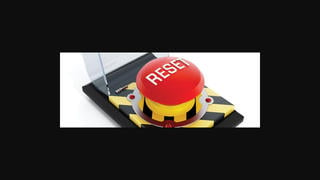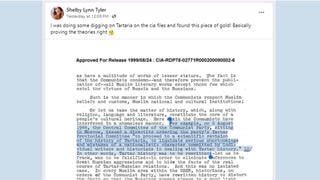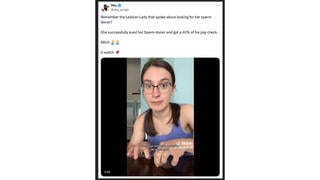
Were two whales found dead in Germany in January of 2019 or 2018 and were their stomachs discovered to be "full of plastic and car parts"? No, not exactly: a clickbait site running stories about health and nature in order to attract visitors copied an old article that had been circulating for some time on such sites but it contains several inaccuracies. Some of them make the story less bad while others unfortunately make it worse.
The story went massively viral via a version published on January 27, 2019 on Healthy Food House titled "Two Whales Found Dead In Germany, Stomachs Full Of Plastic And Car Parts" (archived here) which opened:
Last January, 29 sperm whales were found stranded on shores around the North Sea, which is an area too shallow for the marine wildlife. Yet, the details of their necropsy were released recently, and the findings disturbed scientists.
A press release from Wadden Sea National Park in Schleswig-Holstein reported that the stomachs of many of the whales were full of plastic debris, including pieces of plastic litter, a 13-meter-long fishing net, and a 70 cm piece of plastic from a car.
While some believe that the whales consumed them thinking they were food, like squid, others maintain that this is mainly caused by the humanity's shocking disregard for marine life, which has led to high amounts of plastic in the oceans.
Robert Habeck, environment minister for the state of Schleswig-Holstein, said:
"These findings show us the results of our plastic-oriented society. Animals inadvertently consume plastic and plastic waste, which causes them to suffer, and at worst, causes them to starve with full stomachs."
Users on social media only saw this title, description and thumbnail, leading them to think the events described took place in 2018 or even 2019:
Two Whales Found Dead In Germany, Stomachs Full Of Plastic And Car Parts
Last January, 29 sperm whales were found stranded on shores around the North Sea, which is an area too shallow for the marine wildlife. Yet, the details of their necropsy were released recently, and the findings disturbed scientists. A press release from Wadden Sea National Park in Schleswig-Holstein reported that the stomachs of many of the [...]
First of all, the obvious contradiction: the headline speaks of two whales but the first paragraph says 29. Unfortunately the second number is the true one. But the events did not take place recently (like last month or last year) but in 2016. And not all the whales were found in Germany, in fact the strandings happened in Germany, France, the U.K. and The Netherlands:
Cause of sperm whale strandings is still unclear
29 stranded sperm whales have been found dead or in severe condition in North Sea waters since the beginning of January 2016. Nineteen carcasses were recovered in the Wadden Sea and two near the German island of Helgoland.
The iconic picture with the two dead whales illustrating the story was actually taken in Skegness in the U.K. as can be seen in this article:
Tragic pictures show three dead sperm whales washed up on UK beach
WARNING GRAPHIC CONTENT: Four sperm whales dead around Skegness and one at Hunstanton in Norfolk Security are guarding their 30-tonne bodies to stop trophy-hunters as one of the mammals explodes on the beach Experts believe they were part of an all-male bachelor pod after 12 more were found around Germany
Or here, in a local report:
WHALE UPDATE: Dead whales are moved to Central Beach in Skegness
TUESDAY 2.15pm: Work is underway to unite the three dead sperm whales in Skegness on Central Beach.A spokesman for East Lindsey District Council - the authority responsible for the removal of the carcasses - said the one that had beached at Lagoon Walk had moved in the tides overnight and was now covered in sand to stop it moving again.The others are being towed and pushed with a bulldozer from Gibraltar Point to Central Beach, ready for disposal.
The press release that is talked about in the article can be found here:
Untersuchung der gestrandeten Pottwale: Große Mengen Plastikmüll in den Mägen gefunden - Umweltminister Habeck: „Das mahnt uns, verstärkt gegen Müll im Meer vorzugehen."
Bei der Untersuchung der in Schleswig-Holstein gestrandeten Pottwale sind große Mengen Müll entdeckt worden. Vier der 13 Wale hatten teils große Mengen Plastikmüll in ihren Mägen. Dies war zwar nicht der Grund für die Strandung und den Tod der Tiere, spiegelt aber die Situation auf dem offenen Meer wider.
It does indeed say large amounts of plastic garbage were found in the stomachs of four of the thirteen whales that had stranded in Schleswig-Holstein in Germany but that this did not cause their deaths.
Some of the bits of plastic were pictured in this Instagram photo of one of the researchers:
So there was definitely one Ford engine cover in there, but it is a matter of interpretation if this constitutes "car parts" or just a single "car part".
What does seem clear though: this article has appeared around a dozen times so far on different websites that don't seem to care too much about accurate reporting as long as the clicks keep coming.

















